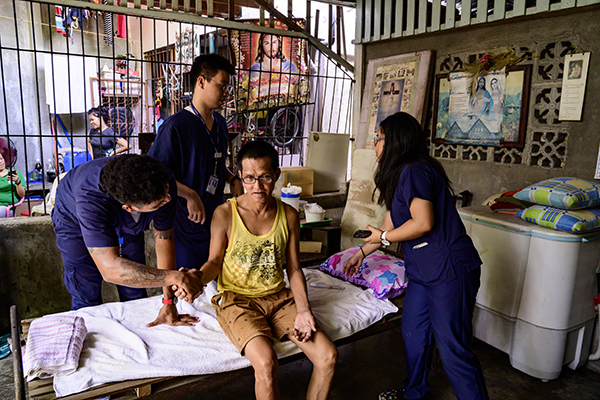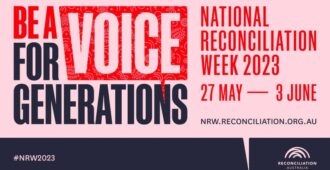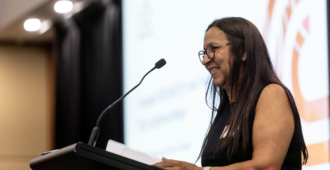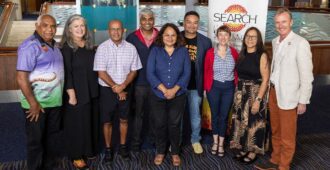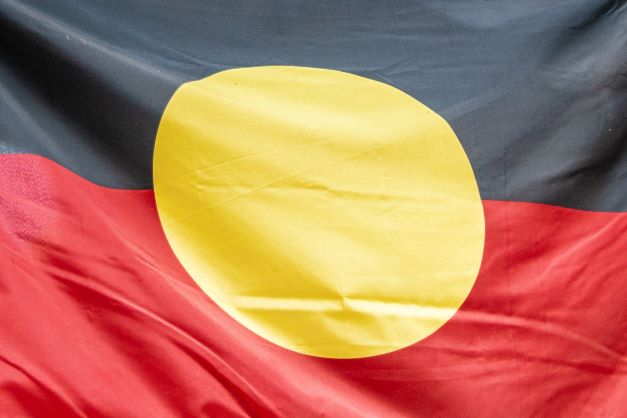
A ground-breaking project developed in partnership between the Sax Institute, two NSW Aboriginal Community Controlled Health Services (ACCHSs) and leading researchers will focus on boosting rates of breastfeeding among First Nations women and improving the health and wellbeing of many mothers and their babies.
Funded by the Australian Government’s Medical Research Future Fund, the project was announced last week by the Federal Minister for Health, the Hon. Mark Butler. It aims to increase rates of breastfeeding among First Nations women through an evidence-informed, community designed pilot breastfeeding program and strengthened capacity of Aboriginal midwives and health workers to provide specialist lactation care.
Breastfeeding for the first six months of a child’s life has important health benefits: it supports early child development, reduces the risk of illness and death in the early years and unhealthy weight in childhood as well as chronic disease in later life. But the ongoing impact of colonisation and other complex intersecting personal and social factors have led to lower rates of breastfeeding initiation and maintenance among First Nations women.
Using decolonisation methods, this innovative project will surface new knowledge from First Nations’ understanding of how best to support Aboriginal women to initiate and maintain breastfeeding. It will apply this knowledge to develop and test a comprehensive breastfeeding program for First Nations women, strengthen capacity to provide culturally appropriate lactation care in two NSW ACCHSs. Key to the project is the co-development of a framework for a First Nations specialist lactation care training for midwives and health workers, which will be scalable to encompass a broad range of First Nations communities.
The project will be led by Sandra Bailey, Senior Adviser on Aboriginal Health at the Sax Institute. A Yorta Yorta woman and expert in Aboriginal primary health care, Ms Bailey was Chief Executive Officer of the Aboriginal Health and Medical Research Council for 25 years.
She says that while most First Nations women have a strong desire to breastfeed, colonisation has introduced a whole range of barriers.
“We want to address these barriers by focusing on our community’s unique needs, with solutions based on culturally sensitive support informed by First Nations ways of knowing, being and nurturing,” Ms Bailey says.
“It’s so important that this project is First Nations-led and founded on strong partnerships with Aboriginal-led health services. Change is only possible when First Nations people have real control over their own lives and destiny.”
“We are delighted to be able to continue our long-term partnership with Aboriginal communities thanks to this new grant,” adds Sax Institute CEO Dr Martin McNamara.
“The Institute remains strongly committed to enabling Indigenous-led efforts to improve the health and wellbeing of First Nations peoples. This new project is a wonderful example of the work being led by Aboriginal communities to develop and deliver innovative health services that are specifically tailored to the needs of First Nations communities.”
Find out more about the Sax Institute’s Aboriginal Health collaborations here.

